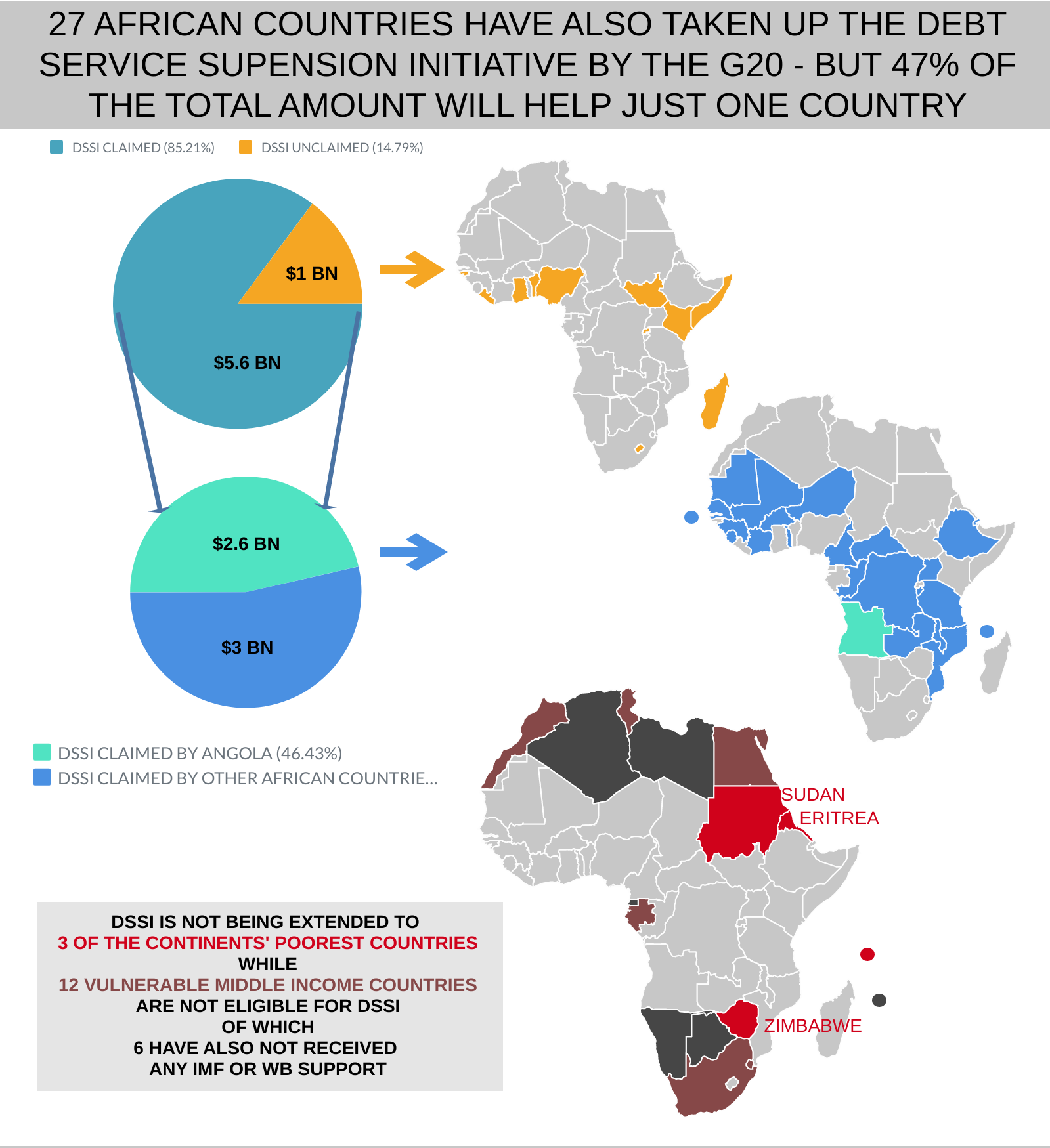Updated Weekly
It’s been 5 months since the 1st COVID19 case was detected on the African continent. How are African countries coping? Our weekly update provides a great, unique snapshot of the progress so far and the challenges building up… So what are the headlines this week?
Across the world and in Africa, COVID19 cases, deaths and recoveries are continuing to rise. However, the average death rate across Africa appears to be lower than the rest of the world, and the rate of spread of COVID19 across African countries has been slower than the rest of the world, albeit still accelerating over time.
However, importantly, the slower speed has – in principle – bought African governments some time to ramp up their response. Evidence suggests most African governments have tried to use this time. Planned budgets for COVID19 health and economic responses have increased by 39% over 3 months, now totalling US$ 53bn.
However, this US$ 53bn is not equally distributed. Only 4 countries – Lesotho, Mauritania, SouthAfrica and Togo plan to spend more than 5% of their GDP to respond to COVID19. The majority will spend under 1%.
This could be buttressed by support from development partners, such as bilateral donors like the US, EU or China, as well as multilateral funds. Indeed, these partners have also been ramping up their support to African countries – we estimate around 75% of government budgets (in total value not individually) could be covered. However, this support is highly concentrated in certain countries, and the majority is loans that will need to be paid back within 5 years – not grants. These partners have also gotten together to create a new temporary scheme – the G20’s debt service suspension initiative (DSSI) – which has been welcomed and taken up by 27 African countries so far. However, 47% of the estimated $5.6bn freed up by this initiative will go to just one country – Angola. Most of Africa’s middle income countries and some of the poorest countries such as Eritrea, Zimbabwe and Sudan won’t benefit at all.
So what is the answer? Can African economies rely on future growth to rebound, post-COVID19? The IMF’s revised forecasts suggests no. While much of 2020/2021 global growth will take place in Africa, the newly revised rates of growth – even at their best – will be insufficient to counter the challenges. And the mismatch between those likely to grow, those with more resources and those working hardest to counter rising COVID19 cases or trying to maintain low cases while recovering economically is extremely large.
What conclusion to draw?
The fight against COVID19 is likely to continue for a long, long time ahead. African governments cannot get weary or negligent. As we set out 2 weeks ago, African countries do have the tools to continue manage COVID19 without seeing escalating numbers of people in poverty. But their financial constraints are the key barrier to making that happen. 5 months into this crisis in Africa it is now time to look at radical solutions. We should be looking at SDR allocations, new borrowing vehicles & clubs… all should be on the table. Before it’s too late for millions of people.
Check out the findings yourself, the data for where your country fits, and do let us know your reflections and radical ideas!

To find out how Development Reimagined can help you, your organisation or Government during the COVID-19 outbreak please email the team at clients@developmentreimagined.com .
A huge thanks go to Rosie Wigmore, Rosie Flowers, and Jin Yu Chen for their work on the graphic and collecting/analysing the underlying data.
The spending data was collated from a range of sources including: the Milken Institute Africa Tracker; the IMF policy tracker; as well as government websites and media reports. Other COVID19 data was collated from our world in data and Africa CDC. Debt data was collected from the World Bank’s International Debt Statistics database.
If you spot any gaps, please send your feedback to us at drteam@developmentreimagined.com, we will aim to verify and rectify asap.
July 2020


